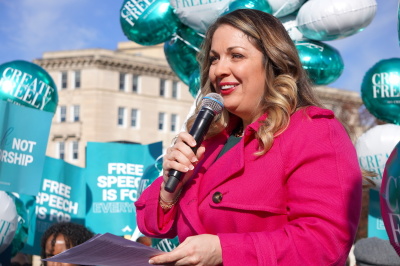Race-based admissions, refusal to celebrate gay weddings: 4 important Supreme Court decisions to watch
303 Creative

Last December, the Supreme Court heard oral arguments in the case of 303 Creative LLC v. Elenis, which centered on whether a website designer was required by law to build sites for same-sex marriages if she offered to build them for traditional marriages.
In 2016, Lorie Smith of 303 Creative filed a pre-enforcement challenge to the Colorado Anti-Discrimination Act, arguing that the law would force her to provide services that go against her sincerely held religious belief that marriage is a union between one man and one woman.
A three-judge panel of the U.S. Court of Appeals for the 10th Circuit ruled against Smith in a 2-1 decision in July 2021, with the majority concluding that "Colorado has a compelling interest in protecting both the dignity interests of members of marginalized groups and their material interests in accessing the commercial marketplace.”
“When regulating commercial entities, like Appellants, public accommodations laws help ensure a free and open economy," wrote Circuit Judge Mary Beck Briscoe, a Clinton appointee, for the majority.
"Thus, although the commercial nature of Appellants' business does not diminish their speech interest, it does provide Colorado with a state interest absent when regulating noncommercial activity."
Tenth Circuit Chief Judge Timothy M. Tymkovich, a George W. Bush appointee, authored the dissent, arguing that “the Constitution protects Ms. Smith from the government telling her what to say or do.”
“But the majority takes the remarkable — and novel — stance that the government may force Ms. Smith to produce messages that violate her conscience,” wrote Tymkovich.
“In doing so, the majority concludes not only that Colorado has a compelling interest in forcing Ms. Smith to speak a government-approved message against her religious beliefs, but also that its public-accommodation law is the least restrictive means of accomplishing this goal. No case has ever gone so far.”





















